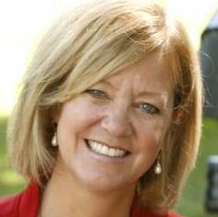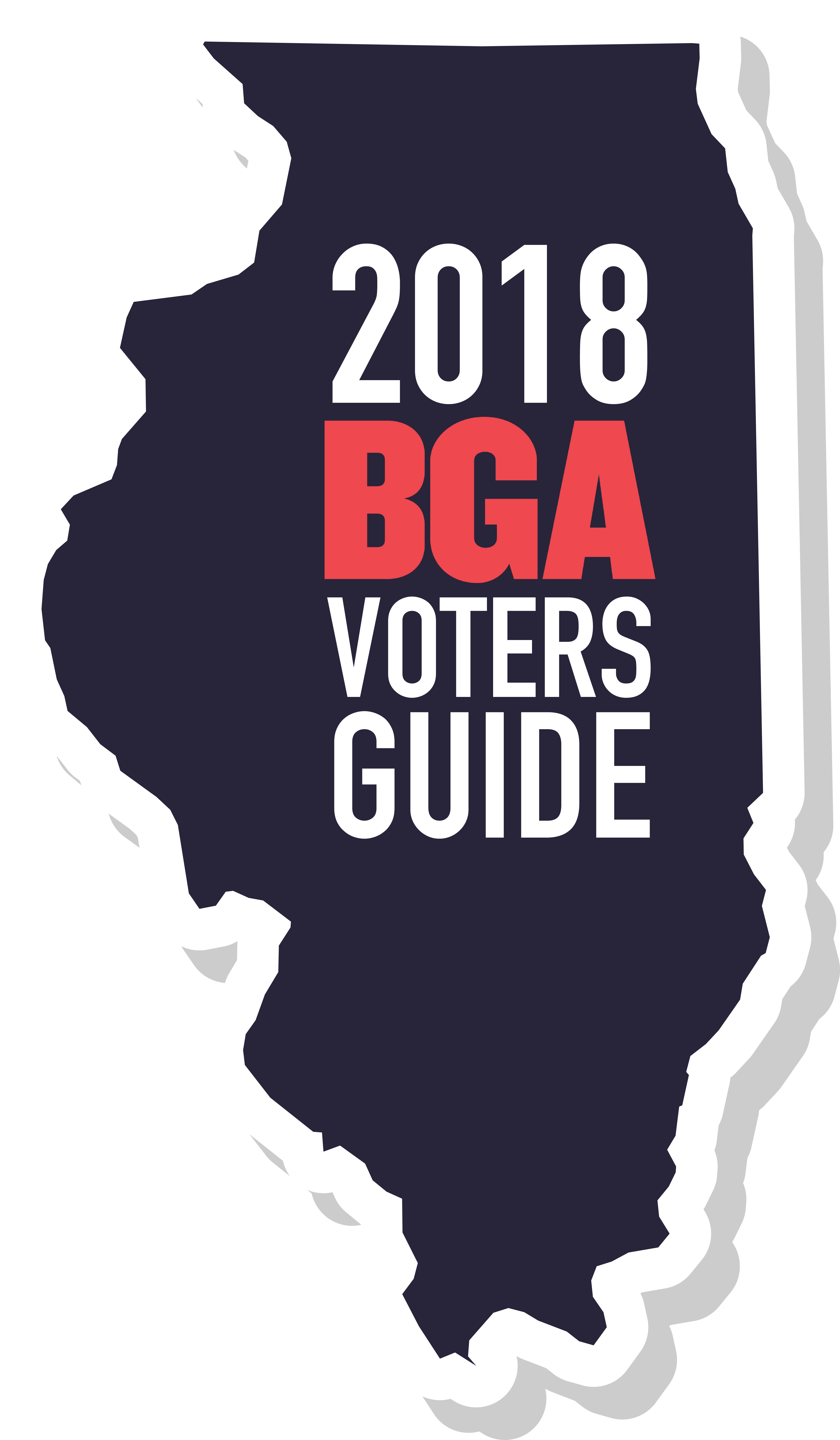Governor (GOP)
Choose the candidates
Candidates:
Questions:
-
Elected offices held and civic involvement
 Ives
IvesNo response.
 Rauner
RaunerGovernor of Illinois
-
1. How will you, as governor, work for transparent, accountable, efficient government?
 Ives
IvesIllinois’ state government is not financeable in its current form. We must institute systemic change or we will feed the fatalism that quickens businesses and families’ departure from this state.
Illinoisans don’t trust their governments. And they shouldn’t. Five-hundred page bills introduced at a moment’s notice, with little time to read them. Ten-year labor contracts negotiated behind closed doors. A dozen separate property tax hikes on a single homeowner from the nation’s most units of local governments.
It’s this lack of transparency that’s left few people trusting their governments. It’s one of the reasons, along with high taxes, that people are leaving.
Illinoisans need to have confidence in their state and their leaders once again. They need to know that Illinois can provide them with the environment and opportunities they need to make their lives successful.
As governor, I will take charge in restoring confidence in Illinois. Illinoisans are hungry for a leader who has the courage to lead and the fearlessness to tackle the state’s crises. Anyone who has seen me defend ordinary Illinoisans’ interests on the House floor or tracked my votes knows I don’t back down.
I will also speak honestly about the severe crises the state faces. Illinoisans don’t need platitudes or vague promises. They need someone actually willing to pursue solutions. And they need a governor who won’t betray them for political gain.
As governor, I’ll fight all the laws that keep Illinoisans in the dark. If we don’t deliver a more transparent and accessible government - from the statehouse to every small village – even more Illinoisans will flee this state.
And I’ll focus on completely rethinking, re-engineering and reintroducing a state government to residents that keeps its promises, balances its books, focuses on its core responsibilities in terms of the provision of services and the setting of the rules of the game.
 Rauner
RaunerI’m committed to making government more ethical and accountable in Illinois. In my first term as governor, I tightened ethics rules for executive branch employees, including limits on gifts from lobbyists, lobbyist-funded travel and a one-year revolving door ban. I launched a new state transparency portal to increase taxpayer access to state contracts and vendor expenditures. And I ended illegal patronage hiring in state government made infamous under my predecessors. But there’s more work to do.
Elected officials should not serve as property tax lawyers. Just look at House Speaker Mike Madigan. He’s been the Speaker for more than 30 years while at the same time he has made millions of dollars from his work as a property tax lawyer. It’s an inherent conflict of interest that has allowed him to become rich off the system while the middle-class struggles with growing property tax bills.
For too long, Illinois has been subject to the whims of a few political insiders. That’s why I’m fighting for commonsense reforms, like term limits and independently drawn legislative maps, which will result in more competitive elections and restore trust in our state government.
-
2. How will you improve public access to information in the governor's office and across all executive agencies? What specifically will you implement or propose?
 Ives
IvesTo see what I’ll do as governor, just look at my record as a legislator when it comes to transparency and public access to information. My record speaks for itself.
As a legislator, I’ve fought against laws that empower government offices over the people they serve. And I’ve sponsored legislation that’s done the opposite.
In 2016, I sponsored a bill, now law, that requires local closed-door meeting minutes to be preserved for future board members. In the past, that information was trashed and new officials, the press and the public were left in the dark.
And I’ve sponsored legislation like House Bill 2717, a bill that requires local governments to post their financial disclosures, budgetary documents and contract agreements online. My goal was to bring taxpayers into the loop on how each unit allocates, spends and makes decisions.
For years I’ve pushed, and will continue to push, for union contracts at all levels of government to be made public before being ratified. That kind of law would stop 10-year contracts like the one in Palatine from ever being voted on.
I’ll champion the same sort of transparency and good government laws at the state level and from the executive office.
 Rauner
RaunerWe need to modernize the way we do business in Illinois. Our methods and equipment are outdated, making it difficult to be entirely transparent with the taxpayers. As we continue our fight against the Madigan Machine to foment ethical, accountable government, updating our technologies to make the state more transparent is crucial to our effort to shake up Springfield.
One of my first acts as governor was to establish a transparency and accountability pipeline, combating a decade of patronage hiring. Not only did this apply to statewide agencies, but also aimed to increase local government transparency. Lastly, in memory of the late Judy Baar Topinka, we enacted legislation preserving the transparency and accountability she displayed during her time in office. The bill established two entities in which state and local government financial records and analyses are available to Illinois taxpayers.
-
3. Illinois has the most units of local government in the nation -- what initiatives/policies would you advance to consolidate and streamline government?
 Ives
IvesIllinoisans have no way to keep up with the bloated and often corrupt nature of their local governments. Some residents are subject to 15 separate taxing units - far too many for even the most dedicated citizen to keep an eye on.
The result of having too many governments – and the bureaucracies to run them – is that Illinoisans now pay the highest property taxes in the nation.
A key way to bringing those taxes down is to reduce the number of local governments.
As governor, I would initially focus on streamlining Illinois’ 860 school districts. By that, I don’t mean closing schools or busing students 20 miles to other districts. I also don’t mean merging expensive contracts or paying for new state-subsidized buildings.
My goal is to simply rid Illinois of an unnecessary layer of district bureaucrats that suck up money that should be going to classrooms and students. Every school district in Illinois should be a unit district. That change alone would dramatically cut district bloat.
I will also work to consolidate Illinois’ university systems and their governance boards. Too many university administrations pursuing similar educational agendas have lead to programmatic overlap in this state. That drives up costs and decreases educational excellence.
I’ll also support the efforts that are well under way to reduce the hundreds of unnecessary townships that still remain in Illinois.
 Rauner
RaunerThe bureaucracy in Illinois buries businesses in red tape and severely restricts job growth. I have made reducing the obstacles to job growth a priority throughout my administration. I modernized government IT systems to increase efficiency and accountability, supported legislation making government consolidation easier, and established a task force to reduce red tape and regulation. These are strong steps to attract jobs to our state, but we need to continue to fight for commonsense reforms to cut regulation on businesses and grow jobs.
-
4. Illinois' pension crisis is the worst in the nation. In addition, local governments are saddled with rising pension obligations from local fire and police pension funds. What policies would you put forth to address Illinois' pension crises?
 Ives
IvesAs governor, I will lead the charge to:
- Pass a constitutional amendment to change the pension protection clause of the state constitution. Going forward, pension benefits for services not yet delivered by government workers should be changeable.
- Require all new hires to enter into a 401(k)-style self-managed plan. Lawmakers don’t need to craft a new 401(k)-style plan. Instead, they can simply expand the State Universities Retirement System’s Self-Managed Plan to all state workers. The SURS SMP is a 401(k)-style plan that’s been operating for nearly 20 years and is used by over 20,000 SURS members.
- Re-negotiate pension obligations with current workers and retirees. Many pension plans will either be insolvent or require confiscatory taxes that cannot realistically be paid. We must have an honest conversation – as Rhode Island politicians had with their pensioners – in order to solve this problem once and for all.
In addition, I won’t stand by and watch the retirement security of local police and firefighters erode just as it has for public workers at the state level.
Individual cities must have the right to choose the retirement plan they offer their public safety and municipal workers, whether it’s a pension, a 401(k)-style plan, or another option.
Unfortunately, reforms may come too late to save the finances of deeply indebted cities with near-insolvent pension funds. Those communities will not survive unless they are given a chance to reorganize their debts. I will promote a bankruptcy option for those cities as part of my reform package.
 Rauner
RaunerOur pension problems are hurting our economy and our budget. I’ve been able to implement reforms through executive actions like bringing in more sophisticated asset managers and reduced fees and costs. Altogether we’ve saved $60 million while increasing investment returns by a full percentage point. I’ve also been the first executive in recent memory to actually represent taxpayers at the bargaining table with state employees. Too many governors in the past gave away unaffordable benefits in exchange for campaign support. It’s a corrupt, closed-loop system that we need to end once and for all.
But long-term pension reform also requires the cooperation of the general assembly. Unfortunately, leaders like House Speaker Mike Madigan have been more interested in currying political favor with the special interests than passing real reforms. That’s one reason why we need to change the makeup of the general assembly in this year's elections – and that's something I'm committed to achieving.
-
5. Illinois went two years without a budget. What will you propose, legislatively, to improve the budgeting process? For instance, do you support improved reporting on tax collections and fund transfers, multi-year forecasting and planning, rainy day funds, ending continuing appropriations that allowed the state to spend without any budgetary controls?
 Ives
IvesFor nearly two decades, the legislature under Mike Madigan has passed failed, unbalanced budgets using financial tricks. Their actions have made a mockery of the state’s constitutional requirement to balance the budget.
That has to end. I promise that I will hold the legislature accountable to their constitutional requirement.
As governor, I will fulfill my constitutional duties to submit a balanced budget to the legislature. I will be ready to cooperate with the legislature to craft a budget that meets the needs of Illinoisans so long as it does not rely on additional taxes.
But if the legislature ultimately sends me an unbalanced budget, I will veto it. Just as the governor has the duty to recommend a balanced budget to the legislature, the legislature also has the constitutional duty to pass a budget where spending does not exceed revenues.
I will champion the reforms necessary to make sure the state’s expenditures match the state’s revenues. I support improved reporting and restrictions on fund transfers. And I will work to get a TABOR law passed that caps annual state spending growth at no more than the rate of inflation + population growth. It must also create a rainy day fund so that we end the corrupt practice of racking up unpaid bills. If we stop digging, we can climb out by paying down our obligations.
And for the record, I voted against all the stopgap budgets. We can not, and should not, run our state with fake budgets.
 Rauner
RaunerWe must balance the budget without raising taxes. Raising taxes without structural reforms like the legislature did last year will actually make it more difficult to balance the budget. Rather than enacting reforms to improve government efficiency and encourage job creation and economic growth, the legislature doubled down on the same failed economic and fiscal policies that have caused Illinois to bleed jobs and population in recent decades.
We can – and must – balance the budget by transforming the way government operates, reforming the pension system and growing the economy, which will bring in more tax revenue.
-
6. What campaign finance and legislative reforms would you propose to improve people's trust in government and politics? What would you propose to empower more people to successfully seek office?
 Ives
IvesI will continue to support term limits on all elected officials. I also support the creation of an independent maps commission.
Despite a considerable money disadvantage in the Governor’s race, I do not believe in public funding of elections. Giving to political campaigns and causes is, and should remain, free-expression.
Money isn’t everything, either. Often candidates who self-fund do not win. In my own race, for example, I only need a threshold amount of money to get my message out and let people know who I am in order to win.
 Rauner
RaunerI will be working alongside Senator Oberweis and Representative Wehrli to pass their bill banning lawmakers from taking part in the property tax assessment process. The system has become a corrupt means for the powerful and politically-connected to make millions at the expense of the few. This legislation is not only good government but sends a signal to taxpayers that legislators in Springfield are working on your behalf and not for their own benefit.
Additionally, I have advocated since day one to enact term limits on all elected officials. Illinois politicians like Mike Madigan have made careers from cultivating and consolidating power through decades in office. It is critical to enact term limits to prevent this cycle of corruption from continuing. I have also fought for independently drawn maps, ensuring that every Illinoisan has a voice in the legislative process and no one is silenced simply because of where they live.
-
7. How will you improve government accountability by expanding/improving the power of inspectors general across the state? What specifically would you propose?
 Ives
IvesAs Governor, I will put in place a public corruption task force inside the Governor’s office that will follow-up on specific and documented findings of misuse of power or money by government agencies around the state. Too many times, the Office of Executive Inspector General, the Auditor General, ordinary citizens, or good government groups find and report public corruption and nothing is done about it. This task force will be tasked with following up to ensure action is taken in response to findings of malfeasance and mismanagement. That action may include recommendations of new laws or procedures, recommendations of firing of specific individuals, or recommendations that the information be turned over to the local states attorney for prosecution.
As Governor, I will ensure my agencies, boards and commissions adhere to the highest of ethical standards and are watchdogs for taxpayer money.
 Rauner
RaunerI recently signed an executive order expanding the reporting resources for sexual harassment cases, creating a clear procedure for review and reference to the office of the Inspector General. I also signed the bill the legislature passed in November as a first step to a more transparent, independent office of the Inspector General. We need to allow the inspector general to have unilateral power to decide what needs to be investigated, and grant him or her the authority to pursue
